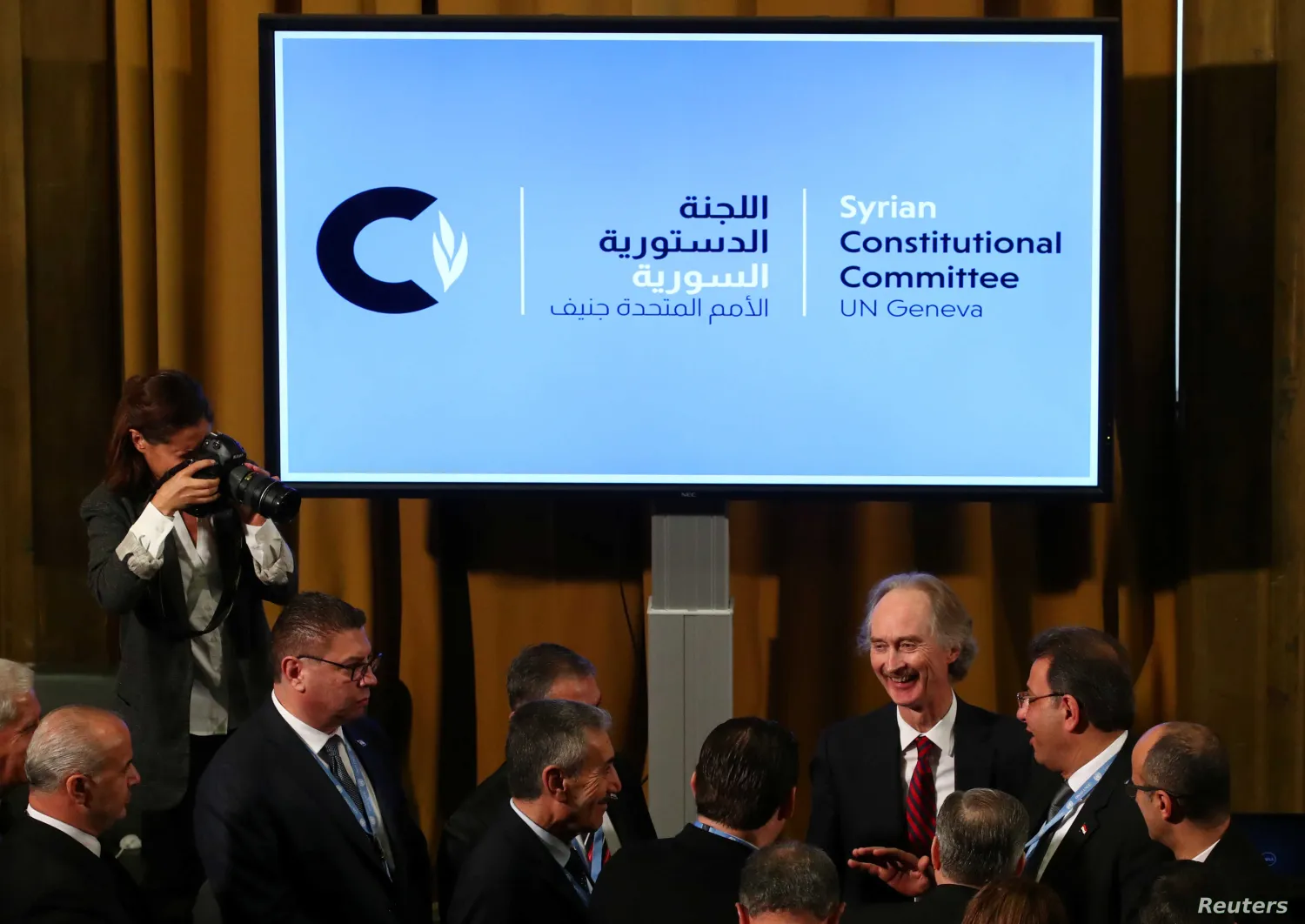The Small Body of the Syrian Constitutional Committee will convene next week in Geneva for another round of talks to agree on some principles based on the respect for the UN charter, Security Council resolution 2254, Syria’s sovereignty, unity, independence, and territorial integrity, announced UN Special Envoy for Syria Geir Pedersen.
The Special Envoy was briefing members of the Security Council on the political, social, economic, and security developments in Syria.
Pedersen addressed the recent blast in Beirut, saying that many Syrians were among those killed or injured in the tragic explosion, warning that the ramifications for Syria’s humanitarian and economic supply chains and revenue from transit trade will be significant, given the collapsing local economy.
The Envoy admitted that holding the meeting is challenging amidst the global COVID-19 pandemic. However, he asserted that, excluding any developments on the pandemic, the meeting will be held on August 24 after agreeing with the co-chairs and receiving positive responses from the committee members.
He confirmed that strict health and safety protocols will be implemented to mitigate risks.
Pederson recalled that the agreement mandates the committee, within the context of the UN-facilitated Geneva process, to “prepare and draft for popular approval a constitutional reform as a contribution to the political settlement in Syria and the implementation of resolution 2254.”
Millions of Syrians continue to face immense suffering and can’t wait for a political breakthrough, he said, asserting that a complete, immediate nationwide ceasefire, as called for in resolution 2254, is needed to enable an all-out effort to combat the pandemic.
He urged Turkey and Russia to contain all escalatory acts, restore stability, and continue cooperation. He also called on all actors to ensure that any actions taken to address “Security Council-listed terrorist groups are effective, targeted, and in line with international humanitarian law, ensuring the protection of civilians.”
Pedersen warned that Syria’s sovereignty remains compromised and that the presence of “five foreign armies creates a serious risk of threats to international peace and security.”
This is the Committee's first meeting since November when it held its second round of talks and the representatives of both sides failed to agree on the agenda.
The government wanted to discuss national constants such as terrorism and the easing of penalties before discussing constitutional matters, while the opposition asserted that these issues could be addressed within the constitution.
Also, at the session, the US Ambassador, Kelly Craft, said the US is hopeful the meeting "will yield a clear path forward for the political process," stressing that "now is the time for urgency, compromise, and action."
Craft expressed hope that the meeting can directly address constitutional reforms and that members are willing to remain in Geneva for weeks and agree to a future round of meetings throughout the fall so progress can be achieved and elections can take place.
"The key to achieving a credible, long-lasting political (solution) to the Syrian conflict is a permanent, nationwide ceasefire," she said.
"We call upon the Assad regime and its Russian and Iranian enablers to commit to this political process by halting all further attacks."
The Council members welcomed the efforts to hold the committee's upcoming meeting, reiterating their support for the international envoy, saying it is a step in the right direction for the political process that “should lead to free and fair elections under the supervision of the UN.”









